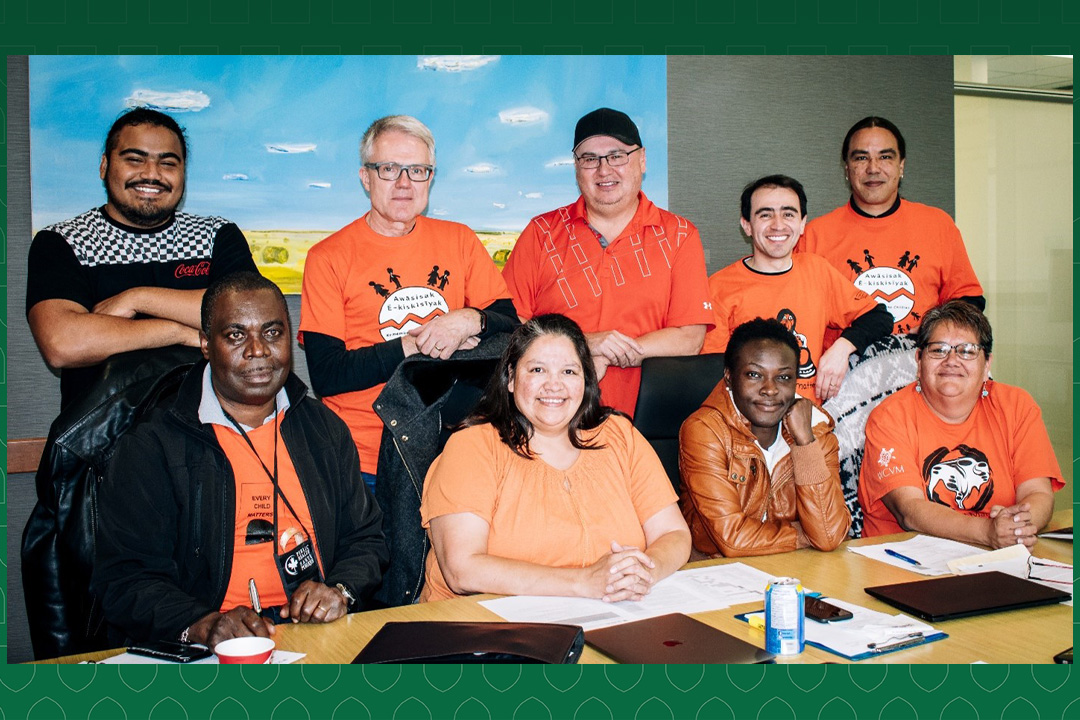
Number of First Nations people living with IBD in Saskatchewan has doubled
SASKATOON – The number of First Nations people in Saskatchewan living with inflammatory bowel disease (IBD) more than doubled from 1999 to 2016, according to research recently published by University of Saskatchewan (USask) community health and epidemiology researchers.
By Rachel SloaneIBD is a chronic condition characterized by inflammation of the digestive tract—ulcerative colitis and Crohn's disease are the two main types.
While the number of newly diagnosed First Nations people has remained stable at an annual rate of about 11 cases per 100,000 population, the rate of new cases in the general population has been decreasing. As a result, the proportion of First Nations people living with IBD has increased slightly faster than in the general population.
“Our main aim as a research team is to advocate for better health care and wellness for Indigenous patients living with IBD through community-based evidence,” said Dr. Juan-Nicolas Peña-Sánchez (MD, PhD), from USask’s Department of Community Health and Epidemiology and co-principal investigator of the study.
The USask IBD among Indigenous Peoples Research Team, led by Peña-Sánchez and Dr. Derek Jennings (PhD)published the results of their research in the journal Inflammatory Bowel Diseases.
“There is a lack of public awareness of the impact of IBD in Saskatchewan, and Canada as a whole,” said Jessica Osei, the team’s research coordinator.
Peña-Sánchez id there is a misconception that IBD is extremely uncommon among Indigenous peoples. This misconception could delay the IBD diagnosis among Indigenous patients when presenting with symptoms of this condition and potentially deferring access to treatments and the ability to prevent related complications.
Previous studies focused on the lower rates of IBD among people with Indigenous backgrounds compared to the general population. In partnership with Indigenous patients and family advocates—family members who advocate for an Indigenous person with IBD—this study aimed to determine the epidemiology and changes over time of IBD among First Nations since 1999 in Saskatchewan.
This evidence is being usedo advocate for better health-care and wellness for Indigenous peoples living with IBD, informing health-care providers and policymakers. It could also encourage IBD Indigenous patients, their families, health-care professionals, and decision-makers to promote culturally safe and innovative care for IBD patients with Indigenous backgrounds.
According to Peña-Sánchez, the team’s next goal is to expand the project to other Canadian jurisdictions to promote awareness and provide a strong understanding of the epidemiology of IBD among Indigenous peoples.
The research team is currently recruiting participants in a study that uses a research method called photovoice. Indigenous peoples living with IBD will be able to express their views about living with this chronic condition.
The IBD Among Indigenous Peoples Research Team includes USask community health and epidemiology researchers Jessica Osei, Jose Diego Marques Santos, Dr. Juan-Nicolás Peña-Sánchez (MD, PhD), and Dr. Derek Jennings (PhD), psychology researcher Dr. Ulrich Teucher (PhD), Indigenous Studies researcher Dr. Michelle Johnson-Jennings (PhD), Mustafa Andkhoie in USask’s School of Public Health, and Dr. Sharyle Fowler (MD) in the USask College of Medicine. The team also includes Colten Brass (Muskoday First Nation), Linda Porter (One Arrow First Nation), Rhonda Sanderson (James Smith Cree Nation), and Rob Porter (York Factory First Nation), as well as Carol-Lynne Quintin (Crohn's and Colitis Canada) and Germain Bukassa Kazadi (Indigenous Services Canada).
This study was funded by a Sprout grant of the Saskatchewan Health Research Foundation (SHRF) and the Saskatchewan Centre for Patient-Oriented Research (SCPOR). They also received support from the USask College of Medicine Research Award (CoMRAD).
Read the full publication here.
-30-
For more information, contact:
Victoria Dinh
USask Media Relations
306-966-5487
victoria.dinh@usask.ca

